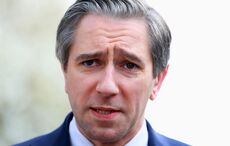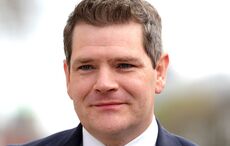Shocking details have emerged proving that RUC Special Branch secretly watched as a notorious Loyalist bomb maker met with key members of a Loyalist terror group weeks before they murdered solicitor Rosemary Nelson.
No one has ever been convicted of killing the mother-of-three when a Loyalist bomb exploded underneath her car as she left her home in Lurgan, County Armagh on March 15, 1999. The Loyalist LVF group later claimed responsibility for the solicitor's murder.
Nelson had repeatedly reported being threatened by police officers.
In 2004 retired Canadian judge Peter Corry said that he had uncovered enough evidence of security force collusion in Nelson's murder to warrant a public inquiry into her killing.
Last month a Special Branch officer alleged while giving evidence to the public inquiry into Nelson's murder that she had passed on sensitive information to the IRA before her death. He also claimed that Nelson had been having an affair with a leading IRA man.
The claims were angrily refuted by the solicitor's family as well as Sinn Fein and the SDLP.
However, the public inquiry has now heard evidence from a second Special Branch officer admitting that police had watched as a well-known loyalist bomb-maker met with Nelson's killers weeks before her death.
The Special Branch officer, identified only as "B511," confirmed that police had secretly watched as the Loyalist bomb maker met with leading members of the LVF in Lurgan weeks before Nelson was killed in March 1999.
While the bomb maker's identity was not disclosed by the inquiry, Loyalist sources have identified him as Thomas "Tucker" Ewing.
Cross-examining B511 over the fact that Special Branch had regarded Ewing as a key Loyalist bomb-maker even before Nelson's murder, the inquiry's senior counsel Peter Skelton asked, "So back in February 1999, i.e. pre-Mrs. Nelson's murder, you would have been aware of contact, would you?"
"Yes," the Special Branch officer replied. "I would have been aware of meetings between figures within the LVF in mid-Ulster and the bomb maker, yes."
Admitting details of Ewing's role as a bomb maker for the first time, he said, "We had a source of intelligence that started to report on the activities of the bomb-maker," he said. "Any intelligence relating to the bomb-maker seemed to be very topical."
Questioned whether anyone other than Ewing could have made the bomb which killed Nelson, he said, "On the Loyalist side the capability to make UCBTs (under car booby traps) was limited.
"Historically there were bomb-makers that could make such devices. However, the recent attacks and the UCBTs that had been used, we believed came from this one individual from the east Belfast area.
"He had produced, I think, a variety of bombs at a certain point in the 1990s."
Revealing how Ewing had sold six under-car booby trap devices to Johnny Adair's infamous C Company unit, he said, "The bomb maker had links to what would be classified as C Company, UDA, in west Belfast. This grouping had also close links with the LVF. "Its leader had close links to the LVF, a number of figures within the LVF."
However, any hope that Ewing could be called to give evidence of his role in the Nelson murder have been dashed after it emerged that he died of a sudden illness a number of years ago.




Comments